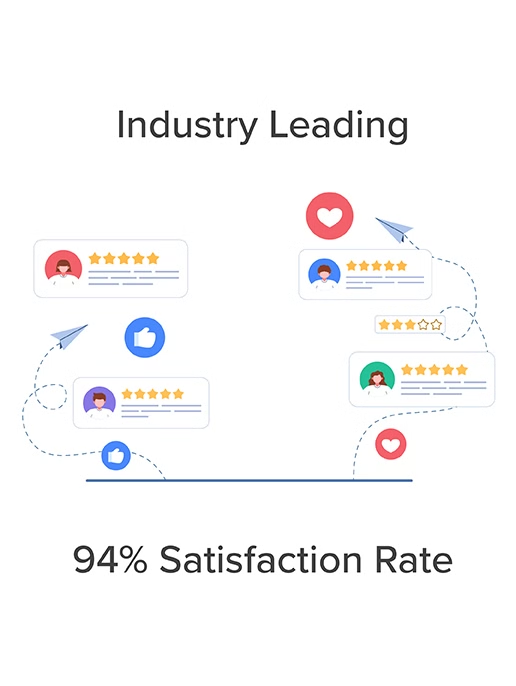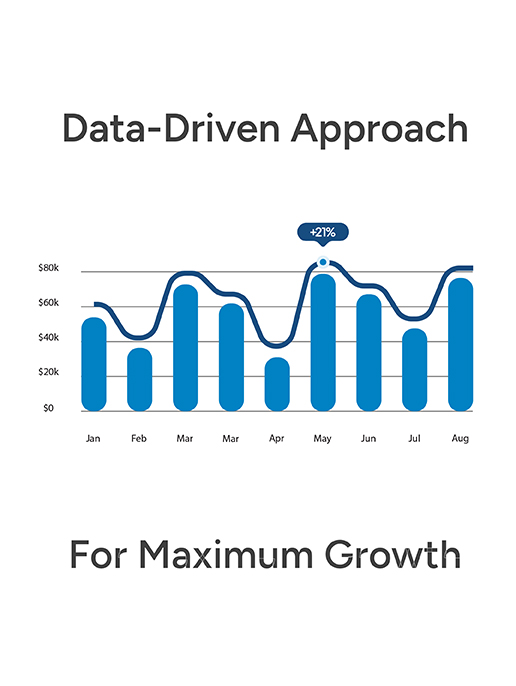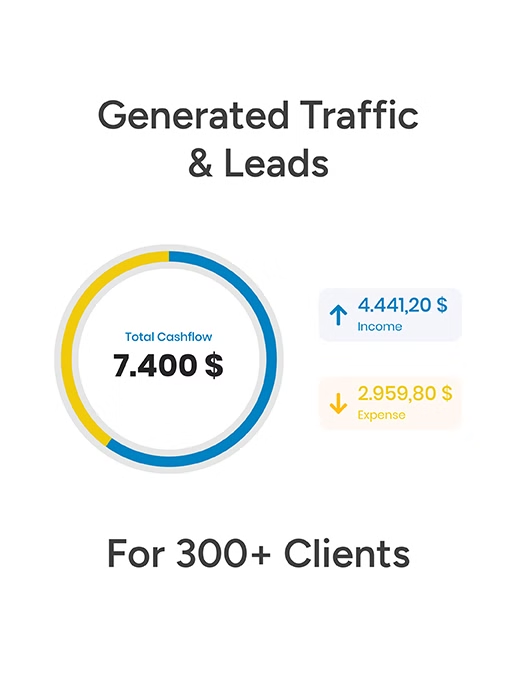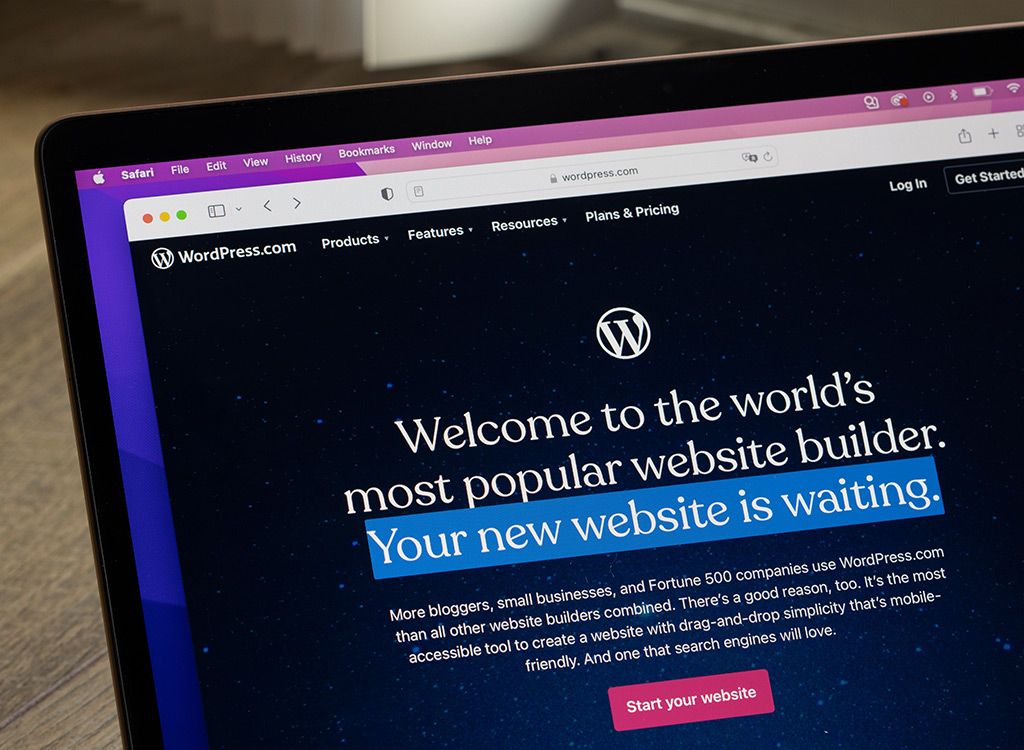


Most agencies charge $4,000–$10,000 for a small business website—before you even start marketing.
Choose a small business website package that gets you live fast with pro design, development, SEO, and content—without the big upfront bill. Our small business website design packages are built to drive calls, leads, and bookings.
With our website packages for small businesses, we handle the tech and updates so you can focus on running your business.

A professional website isn’t optional—but building one yourself can take days.
Redefine Web offers low-cost website development packages for small businesses that include strategy, design, development, SEO, and conversion-focused copy—so you can launch faster and start generating leads.
We tailor your site to your goals, then keep it optimized so you can compete with bigger brands.
Affordable website options often come with hidden fees and price hikes later.
Skip the guesswork and choose a small business website package built to look professional, load fast, and convert. Our small business website design packages are tailored to your brand and ideal customers—so your site attracts the right leads.
Need to grow later? Our business website packages are built to scale, so adding new pages or features is simple—just tell us what you want and we’ll ship it.

| Feature | Essential | Growth | Business | Custom |
|---|---|---|---|---|
| Design/Retainer Hours | 5 Hours (One-time) | |||
| Security Patches | ✓ | ✓ | ✓ | ✓ |
| Full-site backup | Monthly | Weekly | Weekly | ✓ |
| Security Scan | Monthly | Weekly | Weekly | ✓ |
| Server Migration | ✓ | ✓ | ✓ | ✓ |
| Copywriting | ✓ | ✓ | ✓ | ✓ |
| Keyword Research | ✓ | ✓ | ✓ | ✓ |
| Blog Posts | ✓ | 1 | 1 | 1 |
| Text Updates | ✓ | ✓ | ✓ | ✓ |
| On-page SEO | ✓ | ✓ | ✓ | ✓ |
| Photos Update | ✓ | ✓ | ✓ | ✓ |
| Off-page SEO |
| Feature | Essential | Growth | Business | Custom |
|---|---|---|---|---|
| Server Side Caching | ✓ | ✓ | ✓ | ✓ |
| HTTP Protocol | ✓ | ✓ | ✓ | ✓ |
| OpCache | ✓ | ✓ | ✓ | ✓ |
| Mod_Expires | ✓ | ✓ | ✓ | ✓ |
| Browser Cache | ✓ | ✓ | ✓ | ✓ |
| Brotli Compression | ✓ | ✓ | ✓ | ✓ |
| CDN | 82 POPs | 82 POPs | 82 POPs | 82 POPs |
| Feature | Essential | Growth | Business | Custom |
| Email Forwarders | ✓ | ✓ | ✓ | ✓ |
| Catch-all Emails | ✓ | ✓ | ✓ | ✓ |
| Email Aliases | ✓ | ✓ | ✓ | ✓ |
| IMAP/POP3/SMTP | ✓ | ✓ | ✓ | ✓ |
| Autoresponders | ✓ | ✓ | ✓ | ✓ |
| Filters | ✓ | ✓ | ✓ | ✓ |
| MX/SPF/DKIM Records | ✓ | ✓ | ✓ | ✓ |
| Email Virus Scanner | ✓ | ✓ | ✓ | ✓ |
| Feature | Essential | Growth | Business | Custom |
|---|---|---|---|---|
| Design/Retainer Hours | 5 Hours (One-time) | |||
| Security Patches | ✓ | ✓ | ✓ | ✓ |
| Full-site backup | Monthly | Weekly | Weekly | ✓ |
| Security Scan | Monthly | Weekly | Weekly | ✓ |
| Server Migration | ✓ | ✓ | ✓ | ✓ |
| Copywriting | ✓ | ✓ | ✓ | ✓ |
| Keyword Research | ✓ | ✓ | ✓ | ✓ |
| Blog Posts | ✓ | 1 | 1 | 1 |
| Text Updates | ✓ | ✓ | ✓ | ✓ |
| On-page SEO | ✓ | ✓ | ✓ | ✓ |
| Photos Update | ✓ | ✓ | ✓ | ✓ |
| Off-page SEO |
We often send out our newsletter with news and great offers. We will never disclose your data to third parties and you can unsubscribe from the newsletter at any time.
Unfortunately, we’re unable to offer free samples. As a retailer, we buy all magazines from their publishers at the regular trade price. However, you could contact the magazine’s publisher directly to ask if they can send you a free copy.
You can create a new account at the end of the order process or on the following page. You can view all of your orders and subscriptions in your customer account. You can also change your addresses and your password.
No, you don’t have to create an account. But there are a few advantages if you create an account.
You never have to enter your billing and shipping address again
Find all of your orders, subscriptions and addresses in your account
Download invoices of your orders
No, we don’t have a physical store location at the moment. We accept only orders through our online shop and we’re shipping all orders with the Swiss Post Service. Please visit our shipping section for more details.
From time to time you will find us at design fairs and popup markets in Switzerland. Subscribe to our newsletter and you’ll receive the latest news.
Each of our small business website packages includes a soft monthly traffic threshold to keep performance fast and reliable. If you outgrow it, we won’t suspend or throttle your site—we’ll reach out, show you the numbers, and recommend the best-fit upgrade so your growth doesn’t hit a wall.
Our small business website design packages are built to launch quickly and convert. You’ll get:
If you want us to write your content, add our copywriting option (keyword research + SEO-focused page copy).
Our $249.99 per month pay-monthly website plan includes five domain-based encrypted email accounts powered by MailHippo. This allows you to use professional email addresses like yourname@yourcompany.com
instead of a generic Gmail or Yahoo address.
These MailHippo-powered inboxes help keep communication organized, secure, and on-brand. You can set up dedicated addresses such as support@, sales@, or info@ to manage customer messages more efficiently while maintaining a professional presence across every interaction.
Design hours are dedicated time from our team to customize your site—branding, layout adjustments, page sections, and polish. Every plan includes design time; higher tiers include more monthly hours for ongoing improvements. This is one of the key differences across our small business website packages.
We use your included design hours to make the site look like your business—not a generic template. Typical updates include:
Need bigger changes or new functionality? You can add additional hours à la carte—many clients start with one small business website package and scale as they grow.
Most standard builds are delivered in about 30 days, depending on complexity and the speed with which we receive your content and feedback. If you need a more advanced build, we’ll give you a clear, upfront timeline (with milestones) before work begins. Our process is streamlined specifically for small business website packages.
Yes. Our business website packages are designed to be flexible—you can add only what you need, when you need it. Popular add-ons include:
This is how we keep options available for teams looking for low-cost website development packages for small businesses without sacrificing quality.
We guarantee 99.9% uptime and monitor hosting 24/7. Security and reliability are baked into every plan, so your site stays online, fast, and protected—core expectations for all our small business website packages at Redefine Web.
Heat mapping shows where visitors click, scroll, and pause—so you can see what’s working and what’s being ignored. It’s a practical way to improve layout, calls to action, and form performance to increase conversions.
UX analysis examines how real users navigate your site and where they drop off. We use that insight to improve navigation, accessibility, clarity, and conversions. Ongoing UX optimization is one of the highest-ROI upgrades you can add to website packages for small business growth.
Speed directly impacts conversions and SEO. We optimize load time, reduce bloat, and monitor performance to prevent slowdowns. Performance tuning is included across our small business website packages because a fast site wins more leads.
You’ll always know what’s happening. We use simple project tools to keep tasks, files, and feedback in one place. Depending on your plan, you may also get a dedicated project manager. After launch, support runs through your client portal and ticketing system, so issues are handled quickly.
You can provide your text and images, or we can handle it. If you want us to write, our copywriting add-on includes keyword research and SEO-focused copy so your site is built to rank and convert—ideal for clients choosing small business website packages to generate leads.
Our Google Ads audit reviews your account structure, targeting, keywords, ads, bidding, and key performance metrics—then delivers a prioritized action plan to improve results and reduce wasted spend. We’ll ask for read-only access so we can assess everything accurately and recommend the next best steps.
Optimization is about making your site faster and smoother—think image compression, caching, database cleanup, and removing bloat that slows pages down. Maintenance is the ongoing care that keeps your site stable and secure—plugin/theme/core updates, security monitoring, backups, and fixing issues before they become downtime.
Many clients choose our small business website packages because we combine both: speed work that boosts conversions and maintenance that prevents surprises.
Performance slips over time as plugins update, databases grow, and content expands. Our maintenance includes recurring optimization work, such as:
This is built into our small business website packages, so your site stays fast—not just on launch day.
Core Web Vitals measure real user experience—how quickly your pages load, how responsive they feel, and whether layouts jump around while loading. Strong scores can:
If your scores are weak, visitors notice—and Google can too. Our small business website packages prioritize the technical fundamentals that move these metrics in the right direction.
You’ll always know what’s happening and what’s next. We keep communication simple and consistent through:
After launch, you’ll get access details for your client portal and a straightforward support process for any requests. If you add PPC management, we’ll schedule recurring check-ins to review performance and next steps—no guesswork.
Security isn’t an add-on—it’s standard. Across our business website packages, we use a layered approach that includes:
The goal is simple: reduce risk, block common threats, and keep your site online.
Yes. If you’re moving from another host or platform, we can migrate your site with minimal downtime. We transfer:
If you’re comparing website packages for a small business, migration support is often the difference between a smooth switch and a stressful one—we handle it for you.
Yes. All of our small business website packages include remote off-site backups so your data is protected even if something unexpected happens. If there’s an issue, we can restore quickly and get you back online fast.
If you’re looking at website packages for small businesses, make sure backups are automatic and off-site—those details matter when something goes wrong.
We stay on top of WordPress core, theme, and plugin updates—especially security patches. To reduce risk, we don’t blindly push major changes live. We use a staging workflow to:
This is one reason our small business website packages work well for owners who want reliability without having to babysit their website.
No. Backup restores are included as part of our small business website packages, so if an update conflicts or something breaks, you’re not hit with surprise fees.
If you need a single small business website package that covers both protection and recovery, this is exactly what it’s designed for.
We protect sites with multiple layers, including:
If you’re shopping for low-cost website development packages for small businesses, don’t just compare price—compare the security stack. Our small business website design packages are built to help you grow with confidence, not worry about threats.
Yes. SEO and PPC are available as add-ons to our small business website packages—so your site doesn’t just look great, it gets found and converts. SEO builds long-term visibility in Google, while PPC can drive leads fast when you need immediate traffic.
We start by learning your offer, service area, and ideal customer. Then we use tools like SEMrush and Google Keyword Planner to identify search terms that align with buying intent. From there, we map keywords to pages and write SEO-friendly copy that reads naturally and drives action—perfect for small business website design packages that need results, not fluff.
We optimize the essentials that impact rankings and clicks: titles, meta descriptions, heading structure, internal links, image alt text, and mobile performance. We also make sure each page targets the right visitor so you attract qualified traffic—not random visits.
We write content that’s built to convert: clear messaging, strong calls to action, and service-focused structure. Every page is designed to answer “Why you?”, reduce hesitation, and move visitors to contact or buy—while still supporting SEO for your small business website packages.
Yes. If you serve a local area, we help you show up where it matters: Google Business Profile optimization, local keyword targeting, citation building, and review support. This is a common add-on for any small business website package meant to drive calls and walk-ins.
You’ll get consistent, easy-to-understand reporting. For SEO: keyword movement, traffic trends, and key actions taken. For PPC: spend, clicks, leads, cost per lead, and conversion performance. We use the data to improve month over month, especially for website packages for small business owners who want ROI visibility.
Pricing depends on your goals, competition, and how aggressive you want to be. SEO is typically scoped around ongoing optimization and content needs; PPC pricing includes a management fee plus ad spend. We’ll recommend the right fit alongside your business website packages so you’re not paying for extras you don’t need.
SEO is a longer play. Many businesses see early movement in a few months, with stronger results building over 6–12 months, depending on your market. If you need faster lead flow, PPC can complement SEO while rankings grow—especially helpful for website packages for small businesses.
We research your competitors, customer search behavior, and best-converting offers. Then we build targeted campaigns and landing pages, test messaging, and refine bids to improve lead quality and lower costs—ideal for low-cost website development packages for small businesses that still need measurable growth.
We segment audiences, tightly control keywords and locations, and use remarketing to bring back visitors who didn’t convert the first time. Ongoing optimization keeps your spend focused on the people most likely to become customers.
Want SEO or PPC added to your website build? Tell Redefine Web your goals, and we’ll recommend the best-fit add-ons for your small business website packages.
Choose a plan, fill out the onboarding form, and share as much detail as you can (goals, services, competitors, examples you like). Then we’ll schedule a quick kickoff to confirm scope, timeline, and next steps. Our small business website packages are built to launch fast—once we have your essentials, we start building.
Yes. All of our small business website packages include an easy-to-manage editor so you can update text, images, pages, and blog posts without relying on a developer.
Our hosting is included for a hassle-free experience (performance, updates, monitoring). If you’d rather host elsewhere, you can move after applicable buyout fees. We’ll guide you through the options, so your small business website package still stays supported.
Yes. You can add teammates and assign roles so coworkers can upload content while you keep control. That flexibility is included across our small business website packages—great for teams that want to move quickly.
Our base hosting is built for growing businesses and comfortably supports up to 2,000 visits/month while keeping your site fast and responsive. If you outgrow that, upgrading is simple—your small business website packages can scale without downtime.
Yes. Every build includes SEO-ready foundations (mobile-first layout, clean structure, fast load times, and indexing basics). If you want more, we offer SEO add-ons for deeper optimization. This is included across our small business website packages because visibility matters from day one.
A design hour is focused time where our designers customize your site—branding, layout tweaks, section design, and visual polish. It’s how we turn templates into tailored small-business website design packages that look like your business (not like everyone else’s).
Typically, yes—you provide the core info about your business, services, and any must-have messaging. If you want us to write it for you, add copywriting, and we’ll handle the messaging and on-page structure. Either way, our small business website packages keep the process straightforward.
You can provide your own photos (recommended for authenticity). If you don’t have images yet, we can help source and style visuals as an add-on so your site still launches on schedule. This is common for website packages for small businesses that need speed and polish.
Yes. If you need advanced features, specialized integrations, or a more custom design than our standard business website packages offer, we’ll quote it clearly. Send your requirements and examples, and we’ll respond with a scoped plan and price.
Because you shouldn’t have to babysit your website, with Redefine Web, we handle updates, uptime, security monitoring, and backups—so you can focus on running your business. It’s the simplest way to keep small business website packages truly “done-for-you,” not “done-then-deal-with-it.”
If your traffic or content needs increase, you can upgrade smoothly—no rebuild required. Your site stays online, and we adjust resources to match demand. Our small business website packages are designed to grow with you.
Security is built in: ongoing monitoring, regular updates, firewall protection, and offsite backups. We take practical steps to reduce risk and restore quickly if anything happens—especially important for website packages for small business sites that rely on lead flow.
Yes. Tell us what you’re currently using and what needs to move (pages, posts, images, databases). We’ll migrate it with minimal downtime so you can confidently switch to our small business website packages.
If you consistently go beyond the allocated visits/month, we’ll notify you and recommend the right upgrade. No sudden shutdowns and no performance sabotage—just a clear path forward. This is part of keeping small business website packages reliable as you grow.
North America and Europe. We’ll place your site in the closest region to your audience for better load times.
Yes. Need more pages, additional functionality, integrations, or ongoing design support? We’ll tailor it. That’s how we keep our small business website packages flexible without making them complicated.
Yes. If you already have a site and want reliable hosting, we offer hosting-only options with monitoring, backups, and support. If you want a full rebuild later, you can move into one of our low-cost website development packages for small businesses.
Export options depend on your billing term:
Buyout fees vary based on your setup and the work completed. Contact us with your site details and timeline, and we’ll give you a clear number—no surprises.
